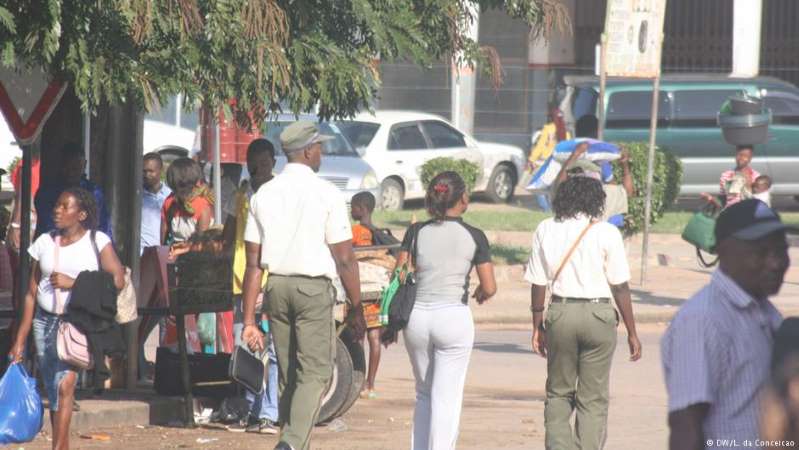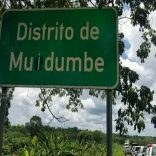Mozambique: Illegal miners loot properties belonging to foreigners in Mogovolas - AIM | Watch
Inhambane: Maxixe municipal police investigated for corruption

Deutshe Welle
Maxixe municipal police in Inhambane are being investigated following an increase in reports of corruption. The chief of operations has already been detained.
Cases of corruption practiced by traffic police are reported on the roads of Inhambane every day.
Sinai Londzo, a spokesperson for the Provincial Office for Combating Corruption in Inhambane, told the press that her institution caught the head of municipal police operations in Maxixe, Florinda Sónia Havene, receiving 50 meticais (0.35 Euros) from a motorist who had committed an infringement.
Havene was detained and taken to the maximum security prison in the city of Inhambane, accused of violating the law.
“The motorist took 50 meticais and handed it to the lady who was questioning him for committing an infraction. The crime of corruption is not a crime of result, it is a crime of danger and no matter the sum involved, what matters is the act itself,” Londzo explained.
Sanctions and penalties
DW Africa tried unsuccessfully to contact the defendant’s lawyer, but Isaías Quipisso, a lawyer at the Inhambane Institute of Patronage and Legal Assistance, said that the detention of the municipal police chief of operations represented the functioning of a structure of legal norms that could be sanctioned and penalized.
“The person is arrested, taken to jail until the preparatory process, and then referred to the court for judgment. The case may be summarized or filed when it is announced by the Public Prosecutor’s Office and the culprit may lose his/her job,” explains.
Some cases of corruption are in the Maxixe judicial court awaiting judgment, such as that of former municipal city councilor Jacinto Chauque and two heads of the Executing and Procurement Unit, Messias Domingos and Rodolfo Tambajane, held on suspicion of corruption in construction works.
Ten agents investigated
Criminal investigation services at the Maxixe district command are also investigating more than 10 municipal police officers for involvement in corruption.
Regarding the delay in the trial of these cases, Londzo underlines that there can be no doubt about the evidence, because the criminals were seized in flagrante delicto.
“When there is flagrante delicto, we do not talk about evidence, because the accused were apprehended while committing the crime. We think of evidence when we do not have elements in front of us, but in this particular case the crime was verified. The court has little to do in the sense of gathering evidence. ”












Leave a Reply
Be the First to Comment!
You must be logged in to post a comment.
You must be logged in to post a comment.